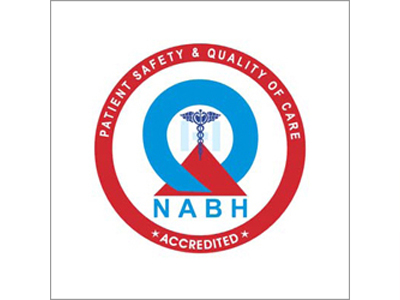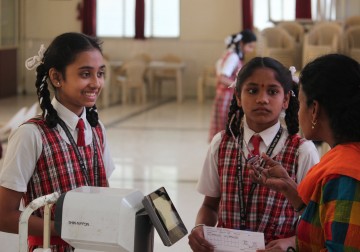In a new study from LVPEI and the University of Hyderabad, Hari Hara Pradhyumna, Manoj K. Manoharan, Dr. Pavan K. Verkicharla, and Dr. Nagaraju Konda report on the current knowledge, attitudes, and practices of eye care specialists regarding the management of myopia.
Myopia, or nearsightedness, is a leading cause of vision impairment in the world among the world’s children (aged 5-15 years). While myopic eyes are easily corrected with spectacles, myopia tends to worsen over time and can become sight-threatening. In fact, a significant section of Indian children with myopia experiences a steady progression of the condition every year. These trends can only be arrested when eye care practitioners use the latest, evidence-based practices of myopia management. For instance, single-vision lenses—lenses with a single focal point—cannot slow down myopia progression. A new set of tools, like myopia-control spectacles, contact lenses, or eye drops, is now available. Yet, according to a 2019 global survey, two-thirds of eye care practitioners still prescribed single-vision lenses to people with progressive myopia. This lack of knowledge highlights one of the several barriers in the effort towards global myopia control.
In the Indian context too, a study from LVPEI identified that Indian optometrists and ophthalmologists were not adopting the latest myopia treatment practices despite being aware of them. Several resources, such as research papers, lectures, and conferences, exist, but how much they have contributed towards improving myopia practices remains unknown. Evidence-based myopia management is the need of the hour in India given the significant rise in myopia prevalence, especially in urban regions of India. It is crucial to understand the barriers holding back optometrists and ophthalmologists from modern myopia practice in clinics.
In a new study published in the journal Clinical & Experimental Optometry, Manoj K. Manoharan and Dr. Pavan K. Verkicharla from LVPEI, in collaboration with Hari Hara Pradhyumna and Dr. Nagaraju Konda of the University of Hyderabad, report the current knowledge, attitudes, practices, and barriers regarding myopia management among Indian eye care specialists. The study used an online questionnaire given to eye care practitioners via social media. The questionnaire has 12 questions divided between the four stated sections. A total of 423 eye care practitioners responded, 66% of whom were optometrists, 18% ophthalmologists, and the rest were either optometry or ophthalmology trainees. Only 22%—including 49 optometrists and 39 ophthalmologists—practiced myopia management.
Most respondents (71%) said that they gained the latest information about myopia from research papers or from continuous professional education (62%), such as seminars, workshops, and fellowships. Most respondents (87%) also believed that myopia control strategies are effective at slowing down myopia progression. They also recommended lifestyle changes to help slow down myopia progression. Notably, one-fifth (20%) of myopia practitioners preferred to under-correct myopia to counteract its progression—an old practice that is not only ineffective but also counterproductive. As for barriers, the lack of awareness among parents, lack of training among eye care practitioners, and lack of treatment access in rural/remote regions of India were seen as the biggest challenges. The study also underscores the lack of myopia practitioners. In the world’s most populous nation, an extrapolation of the findings means that only one in five eye care practitioners focuses on myopia.
‘There are multiple myopia control options, and most of them are non-invasive and clinically tested,’ notes Dr. Pavan Verkicharla, head of the Myopia Lab at LVPEI and the corresponding author of this paper. ‘It is important that clinicians start myopia management at an early age to prevent any complications due to progression towards high myopia. The message is to act before it is too late.’
Citation
Pradhyumna, H. H., Manoharan, M. K., Konda, N., & Verkicharla, P. K. (2025). Exploring myopia management practices among eye care professionals in India: A knowledge, attitudes, practices, and barriers study. Clinical & Experimental Optometry, 1–8. Advance online publication. https://doi.org/10.1080/08164622.2024.2443479
Photo credit: Shrikant Ayyangar, Mission for Vision, WSD Photo competition.



